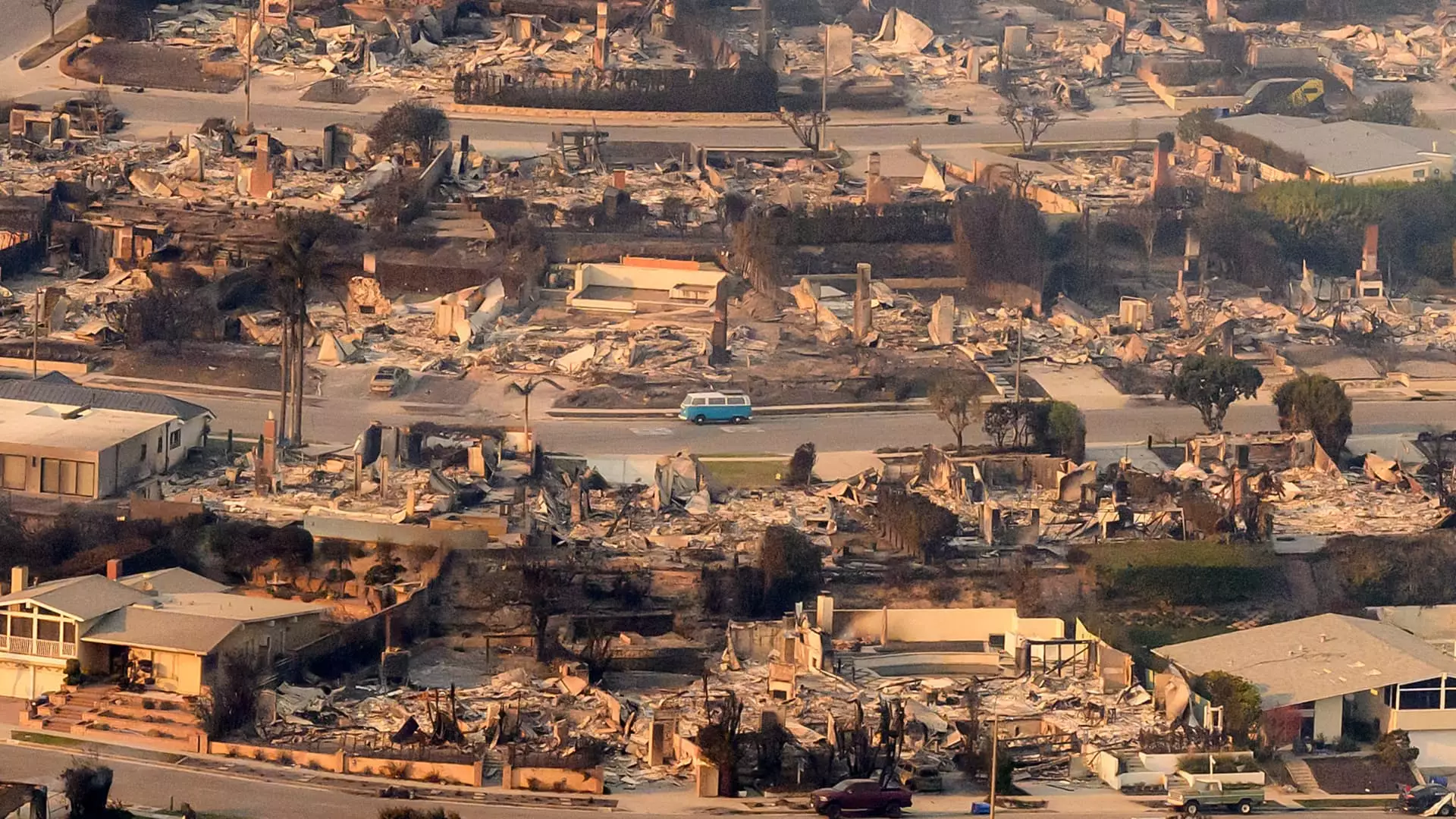The recent wildfires raging through California, particularly near Los Angeles, have triggered significant upheaval in the homeowners’ insurance market. The fires have not only caused catastrophic damage but are also poised to set new records for insured losses. With reports indicating the potential for damages exceeding $20 billion, insurers are facing an unprecedented crisis. As thousands of homes and structures have already succumbed to the flames, the financial ramifications for major insurers like Allstate, Chubb, AIG, and Travelers have become glaringly evident.
The immediate response from the stock market was telling; shares of insurers heavily entangled in the California homeowners’ risk plummeted sharply. Allstate and Chubb saw declines of 4%, with AIG and Travelers dipping by around 2%. Such fluctuations are symptomatic of investors’ growing concerns regarding the sustainability and profitability of these companies in light of escalating disaster recovery costs. These losses marked them as the significant underperformers on the S&P 500 index for that trading day, raising pertinent questions about the resilience of these corporations in the face of climate-related disasters.
Evaluating Insurer Exposure
Market experts at JPMorgan have highlighted that the most vulnerable insurers in the wake of these wildfires are Allstate, Chubb, and Travelers, primarily due to their extensive exposure in the area. Among these, Chubb’s focus on high-net-worth clients in affluent regions like Pacific Palisades makes it particularly susceptible to financial fallout. The median home value in this region exceeds $3 million, exacerbating the risk of soaring claims. The data suggests that those insurers with the greatest stakes in high-value properties may find themselves grappling with losses far beyond their current risk assessments.
Historical context amplifies the urgency of the situation. If current projections materialize, the insured losses from this year’s fires would dwarf the $12.5 billion incurred from the devastating 2018 Camp Fire, previously recorded as the nation’s costliest wildfire. With the prevailing trend in climate change leading to more frequent and severe blazes, experts from Moody’s Ratings have noted that insured losses are likely to reach billions, reflective of the skyrocketing values of residential and commercial properties in fire-prone zones.
The Role of Reinsurance in the Crisis
As insurers brace for significant claims, reinsurers are also feeling the pressure. Companies like Arch Capital Group and RenaissanceRe Holdings reported declines of 2% and 1.5% respectively, revealing their exposure to the same risks faced by primary insurers. JPMorgan analysts suggest that as loss estimates rise, the likelihood of reinsurance contracts being breached increases. This could compound the financial distress, signaling a need for insurers to reevaluate their risk management strategies in light of natural disasters.
The devastation wrought by the Los Angeles wildfires serves as a stark reminder of the vulnerabilities within the insurance industry, notably in regions increasingly susceptible to climate change. As claims mount and losses escalate, insurers must find robust ways to adapt to a shifting landscape, focusing on improved risk assessment methodologies and reinsurance strategies. Only through proactive measures can these companies hope to regain stability and mitigate the profound financial impacts of future disasters. The current crisis necessitates not just a reaction but a reinvention of how insurers operate within high-risk environments.

